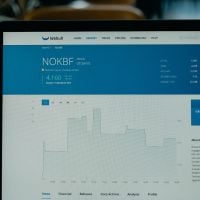Deadline: 30 March 2020
The United States Department of Agriculture (USDA) Forest Service National Forest Resiliency Innovation Challenge Cost Share Grant Program, the Forest Service seeks to establish sustainable urban and community forests by encouraging communities of all sizes to manage and protect their natural resources to improve the public’s health, well-being, economic vitality, and creates resilient ecosystems for present and future generations.
Funds are to support national urban and community forestry projects on non-federal public land that have a national or multi-state impact and application. All awards are based on the availability of funding, which may be subject to change.
Funding Information
- The U.S. Forest Service anticipates that the statutory authority (Sub Title 9 of the Cooperative Forestry Assistance Act) for the Fiscal Year 2020 Urban and Community Forestry (U&CF) Program may provide, approximately $900,000 in grant funds to be awarded through the 2020 National Urban and Community Forestry Grant Program.
- Funds are to support national urban and community forestry projects on nonfederal public land that have a national or multi-state impact and application;
- All awards are based on the availability of funding, which may be subject to change.
Grant Categories
2020 National Urban and Community Forestry Innovation Grant Category
- Creating and Enhancing Resilient Urban and Community Forests:
-
- The USDA Forest Service seeks innovative (new, cutting-edge or builds upon existing studies) grant proposals for program development, study, and collaboration that will address urban and community forest resilience and aligns with one or more applicable goals in the National Ten Year Urban and Community Forestry Action Plan (2016-2026).
- The applicant is to list the Goal(s) their proposal is addressing.
- Integrate Urban and Community Forestry into All Scales of Planning;
- Promote the Role of Urban and Community Forestry in Human Health and Wellness;
- Cultivate Diversity, Equity and Leadership within the Urban Forestry Community;
- Strengthen Urban and Community Forest Health and Biodiversity for Long-Term Resilience;
- Improve Urban and Community Forest Management, Maintenance and Stewardship;
- Diversify, Leverage and Increase Funding for Urban and Community Forestry;
- Increase Public Awareness and Environmental Education to Promote Stewardship.
Research Goal
Research is needed to better understand and monitor current threats, to diminish tree loss, maintain urban forest health, and to sustain ecosystem services. Studies are needed to help anticipate emergent threats or negative conditions to enable proactive management response, as well as, social or policy studies that can help to reveal the institutional best practices that can be put in place for threat response and community engagement for forest
sustainability and resiliency:
- Given likely increase of in invasive species and extreme weather events, effort is needed to better understand and work within change trending to anticipate and integrate Urban and Community Forestry Goals with likely futures, and study of vulnerable situations (such as found in the decimation of USDA Ash and western pine forests) can provide insight for broader patterns and responses;
- Continue and expand studies of natural disasters and urban and community forest ecosystems implications to develop stakeholder awareness, better prioritized community response, policy and programs. That leads to a community’s resiliency to such negative events;
- Clearly define and describe, then quantify urban forest threats and impacts from national to local scales, to include invasive plant species, insect pest invasions, land use development, city/town wildfire, and weather/natural disaster scenarios.
- Create models and decision tools to support community and urban threat forecasting and management response, including trade-offs analysis for policy and budget scenarios. Use current and new evidence to construct best practices for tree/forest/ecosystem threat planning and management.
- Correlate these best practices and threat impacts to a community’s socio and economic impacts.
- Communicate and educate USDA citizens of these threats and their impact of the economic, environmental and community well-being.
Matching Requirements
- All grant funds must be matched at least equally (dollar for dollar) with non-Federal source funds;This match may include in-kind donations, volunteer assistance, and private and public (non-federal) monetary contributions. All matching funds must be directly related to the proposed project;
- The source of matching funds must be identified, and grantees must comply with all applicable Federal regulations.
Award, Reporting and Presentations
Following the final review and selection process, the Forest Service will notify a grant recipient of their award and when they may proceed in writing. Written progress reports are to be submitted bi-annually to their respective Forest Service Urban Forestry Program Manager for verification and approval. Financial progress reports are required to be submitted either quarterly or semi-annually.
Grantees may also be asked to present, their project progress report at a Forest Service Urban Connections webcast. The grantee shall notify the Forest Service, thirty days prior to an active grant’s information or data being presented to the public or peers.
Eligibility Criteria
- Any U.S. Non-Federal and Tribal Organization, operating within the United States or its territories, may apply for the Challenge Cost-Share grant;
- Public and State controlled institutions of higher education;
- Public housing authorities/Indian housing authorities;
- Nonprofits having a 501(c)(3) status with the IRS, other than institutions of higher education;
- State governments;
- City or township governments;
- Special district governments;
- Nonprofits that do not have a 501(c)(3) status with the IRS, other than institutions of higher education;
- Native American tribal governments (Federally recognized);
- Native American tribal organizations (other than Federally recognized tribal governments)
- County governments;
- Independent school districts;
- Private institutions of higher education;
- While collaboration with Federal agencies is encouraged, a Federal agency may not receive funding or be used as match to the Federal funds being requested. Individuals and private land are not eligible;
- Proposals are required to address national, multi-state, or multi-tribal-land urban and community forestry issues. The Forest Service will address any conflicts of interest.
Ineligibility
- If an entity has a local/state tree-planting projects, capital improvements to property of any ownership, and/or projects that have only a local/single state impact and applicability are not eligible;
- Applicants with local proposals should contact their State Urban and Community Forestry Coordinator for assistance in identifying funding alternatives at the local level.
- Innovative Forest Resiliency proposals shall have national or multi-state application and impact. A proposal’s content must meet the Urban and Community Forestry program authorities as designated by Congress in the Cooperative Forestry Assistance Act.
Acknowledgement of the U.S. Forest Service Urban and Community Forestry Assistance Program:
- All applicants that receive grant awards will be required to acknowledge the USDA Forest Service in any written, electronic, or verbal, documents, websites, publications, emails, video, photos, power points, webinars etc. that the Federal grant dollars supported.
- Written statements may use:
- “This project is funded in full or in part by the U.S. Forest Service National Urban and Community Forestry Assistance Program in addressing the National Urban and Community Forestry Ten Year Action Plan (2016-2026)”.
The 2020 Urban and Community Forestry Challenge Cost Share Grant Program will require proposals that clearly define their intent, methodology and deliverables. Only those proposals selected by the Forest Service based on the review panel’s comments and ranking will be considered for potential funding. The review process can take four to six months to complete.
Interested applicants must download and submit the application form via given website.
For more information, visit https://www.grants.gov/web/grants/view-opportunity.html?oppId=323338









































